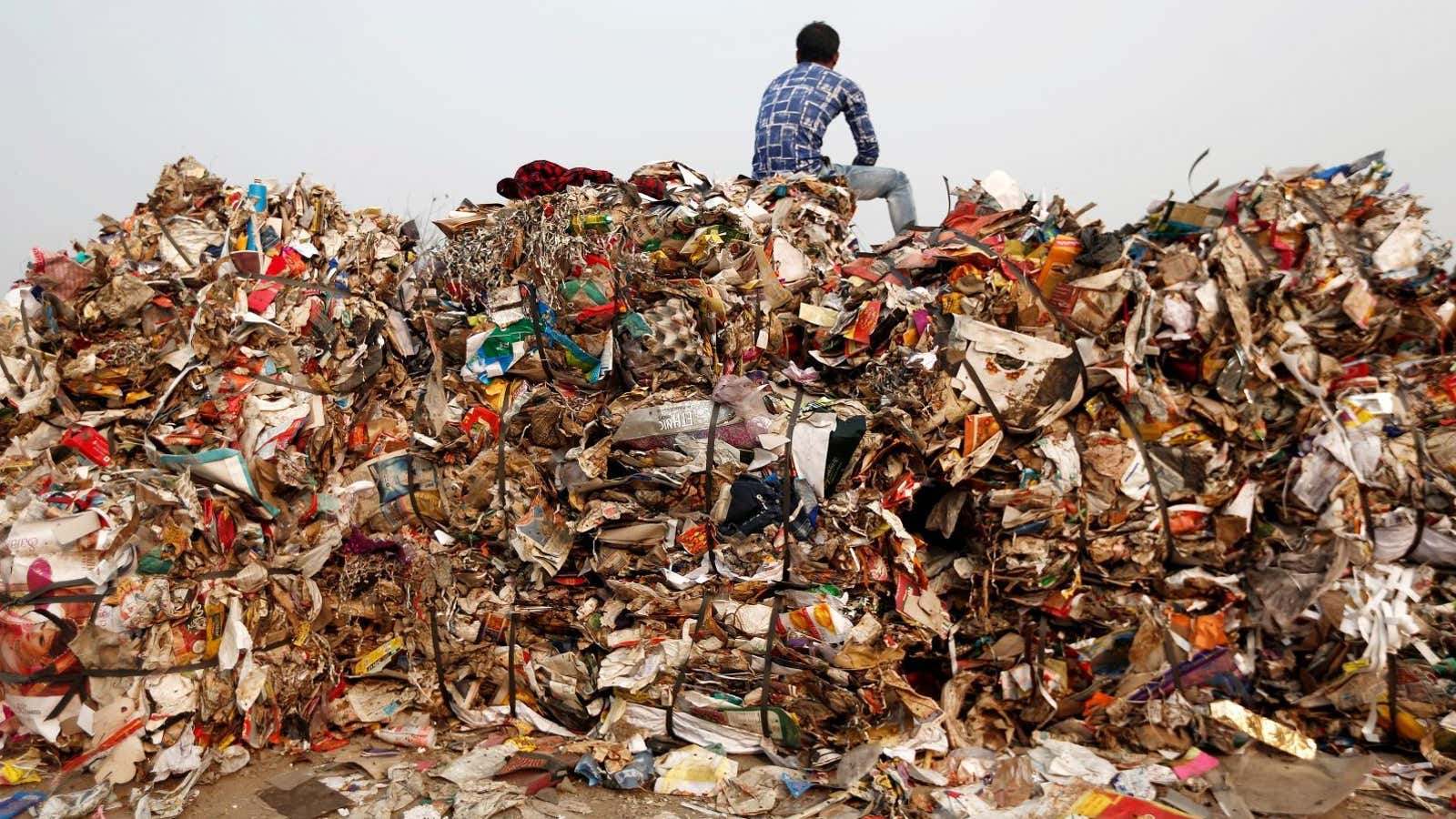India produces 26,000 tonnes of plastic waste every day. The problem balloons during elections as political parties extensively use plastic posters and banners to campaign.
However, Kerala, which goes to polls today (April 23), is skipping the trend. The southern Indian state, known for its idyllic landscapes and high literacy rates, has managed to conduct “green elections” for the first time ever.
In February this year, the state election commission had issued an advisory, asking political parties to refrain from using single-use plastic materials in poll campaigning, prompting them to opt for eco-friendly options. In March, the Kerala high court banned the use of flex and non-biodegradable materials during electioneering.
Since then, wall graffiti and paper posters have become key alternatives in Kerala.
Along with the district administration in the state capital, Thiruvananthapuram, the Haritha Keralam Mission and the Suchitwa Mission, two government bodies looking at waste management, are taking steps to ensure a green election.
Green is clean
“In order to ensure that this is being implemented effectively, we went to the villages and trained election workers there on what needs to be done,” R Ajay Kumar Verma, executive director of Suchitwa Mission, told Quartz. “We have also encouraged the public to come forward and complain if they see the rules being flouted.”
The need to raise awareness of green materials has also increased since the devastating floods in Kerala last August. Over 400 people were killed in the worst floods to have swept the state in 100 years.
“The political parties cannot ignore the use of greener products as it will end up becoming a negative point in the mind of some of the voters,” added Verma.
Polling stations, counting centres, and other election offices had also been directed to avoid plastic material, including water bottles. The directive may not have been followed effectively, but it was a step in the right direction, said political workers of several parties that Quartz spoke to.
However, almost all of them were aware of the green protocol and said their parties had done away with the use of plastic in campaign materials. It is expected that these measures would have brought down the use of plastic significantly this election season.
For instance, during the Attukal Pongala, a 10-day religious festival held in Thiruvananthapuram every year, plastic waste was reduced significantly after the green protocol was implemented last year, explained Verma. For instance, in 2017, up to 200 tonnes of waste was generated during the festival; this reduced to 85 tonnes in 2018, and further down to nearly 65 tonnes in 2019.
Even though other states such as Karnataka, Maharashtra, Himachal Pradesh, Telangana, and Sikkim already have some form of single-use plastic ban in place, it wasn’t extended to elections. Hopefully, they will all follow suit next year.
Read Quartz’s coverage of the 2019 Indian general election here.
